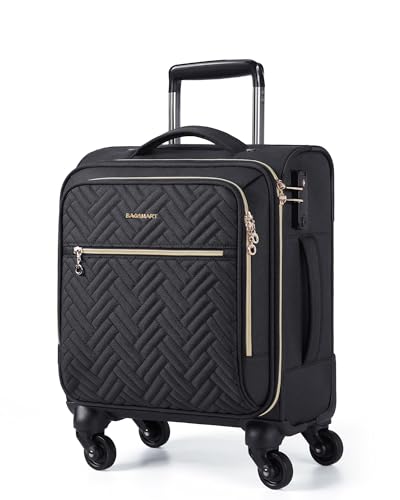




The inclusion of dried or packaged varieties of pasta in your baggage is generally permissible when flying. However, ensure that any items are securely sealed and comply with the airline’s regulations to avoid issues during security checks.
When packing, consider the destination regulations as well, as certain countries might have restrictions on bringing food items. Preparing for these regulations ensures a smoother travel experience and prevents potential confiscations at customs.
If opting for wet or prepared dishes, keep in mind that many airlines have restrictions on carrying liquids or perishable items. It is best to consult with your chosen airline beforehand for specific rules regarding these products.
In summary, while many types of pasta can accompany you on your travels, thorough checks on both your airline’s and your destination’s policies will help avoid any complications.
Can Noodles Be Transported in Checked Bags?
Yes, bringing pasta in checked baggage is typically permitted under airline regulations. The packaging should remain unopened to prevent spillage and maintain freshness.
While various countries allow the transport of dried varieties, ensure no local prohibitions exist, especially for items containing unique seasoning. Customs regulations can vary significantly.
For international trips, check specific airline policies regarding weight limits and baggage claims to avoid additional fees or complications at security checks.
Consider packing the containers securely to prevent breakage or damage. Using resealable bags can help minimize risks of leakage and contamination.
Regulations for Carrying Food Items on Flights
Transporting consumables via air travel may be acceptable, but specific standards must be adhered to. Each airline and destination country may have individual guidelines regarding what food items are permissible. It is crucial to verify the airline’s policies prior to departure.
General Guidelines
Generally, solid foods are more likely to be accepted than liquids or gels. Items such as pre-packaged snacks, dried goods, or canned foods typically pass through screening without issue. However, fresh produce, dairy, and meats may face restrictions due to varying import laws across borders.
International Travel Considerations
Be aware that many countries enforce strict regulations on the introduction of foreign food products. Some nations may prohibit certain items entirely, while others may require declaration upon arrival. Carrying a small quantity of permissible foods can often bypass significant difficulties, especially when traveling to or from a location with stringent agricultural laws.
Types of Noodles Allowed in Check-in Baggage
When packing for air travel, specific types of pasta may be taken along without concerns regarding baggage regulations.
Dried Noodles
- Spaghetti
- Fettuccine
- Udon
- Soba
Dried varieties are generally accepted since they are non-perishable and do not contain liquids or substances that may be restricted.
Instant Varieties
- Ramen cups
- Instant noodle packets
These products are typically approved as long as their packaging is intact. Always check for any liquid flavoring packets that may be included.
Regardless of the type, it’s wise to consult airline policies before traveling. Pack noodles securely to prevent breakage and ensure ease of transport. Additionally, consider pairing your travels with convenience items such as the best gravel bike backpack for seamless journeys or the best beach umbrellas wholesale for leisure trips. Always stay updated on food item regulations to avoid last-minute issues at the airport.
Packaging Requirements for Noodles in Baggage
Use rigid, opaque containers to ensure items remain undamaged during transit. Vacuum-sealed bags can effectively protect food from air and moisture, enhancing shelf life. If using plastic wrap, ensure it is tightly secured to prevent any spills.
Recommended Packaging Types
For optimal protection, consider the following packaging options:
| Packaging Type | Benefits |
|---|---|
| Plastic Containers | Durable, stackable, and resistant to crushing. |
| Vacuum-Sealed Bags | Minimize air exposure, maintain freshness, and save space. |
| Sturdy Cardboard Boxes | Provide excellent protection from external pressure. |
Labeling and Compliance
Clearly label all packages with contents and handling instructions. This helps in identifying items and ensures proper handling by airline staff. Always check with your airline for any specific labeling requirements or additional packaging restrictions.
International Variations in Food Transport Rules
Different countries impose unique regulations regarding the transport of food items, influencing what can be carried during air travel. For instance, within the European Union, packaged, commercially produced food generally faces fewer restrictions, while fresh produce or homemade dishes may encounter stricter scrutiny due to health regulations.
In the United States, policies allow pre-packaged foods through security; however, customs regulations must be adhered to upon arrival. The Transportation Security Administration (TSA) advises that items should be declared if uncertain about their permissibility.
In Australia and New Zealand, strict biosecurity protocols prohibit various foods from being introduced into the country. Travelers should be aware that even minor infractions can result in substantial fines.
Asian nations, such as Japan and South Korea, often exhibit high flexibility towards packaged snacks and quick meal options, although homemade items might still raise concerns among customs officials.
Travelers are encouraged to research specific guidelines for their destination to ensure compliance, thus avoiding potential confiscation or fines. Consulting the airline and the customs office of the chosen country can provide clarity on acceptable food items for transport.
Tips for Avoiding Issues with Noodles at Security
Ensure items are well-packaged to prevent spills or leaks that may draw attention during inspections. Vacuum-sealed containers or sturdy plastic bags are preferable.
Choose Approved Brands

Opt for commercially packaged varieties that comply with transportation regulations. Check labels for any restrictions that airlines may impose on certain ingredients.
Be Prepared for Questions
Maintain transparency with security personnel. If asked, explain the contents clearly. Providing a receipt may expedite the verification process.
Review the latest guidelines on food transport prior to your trip, and consider checking resources like are there any british made fridge freezers for more general travel advice.







